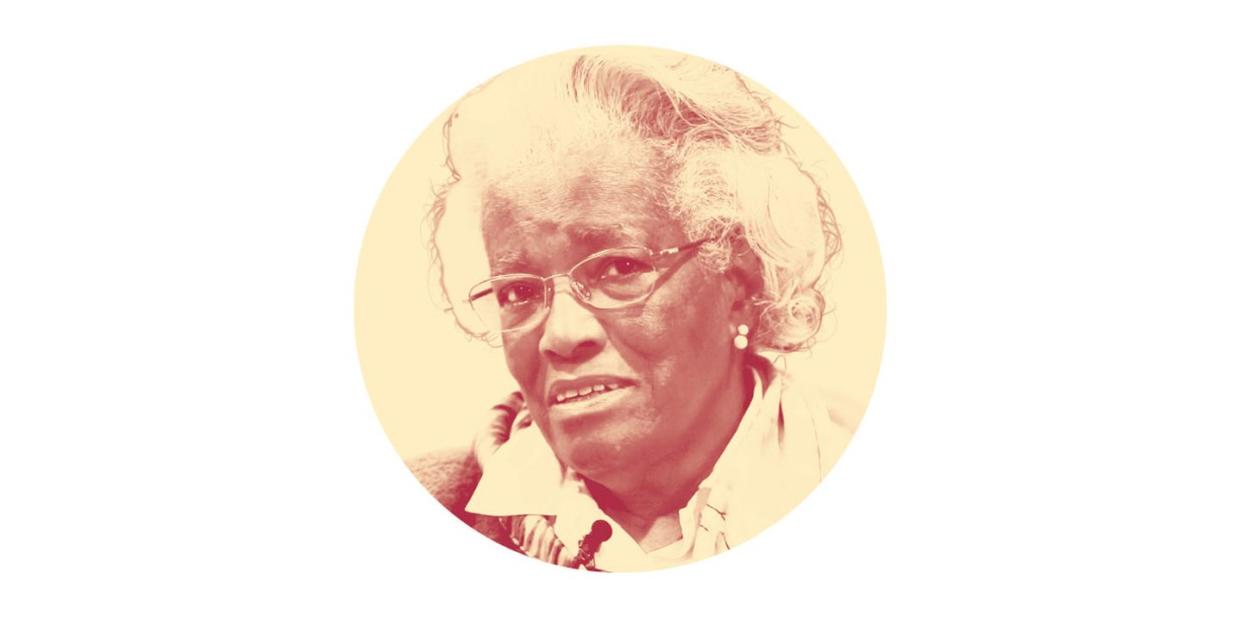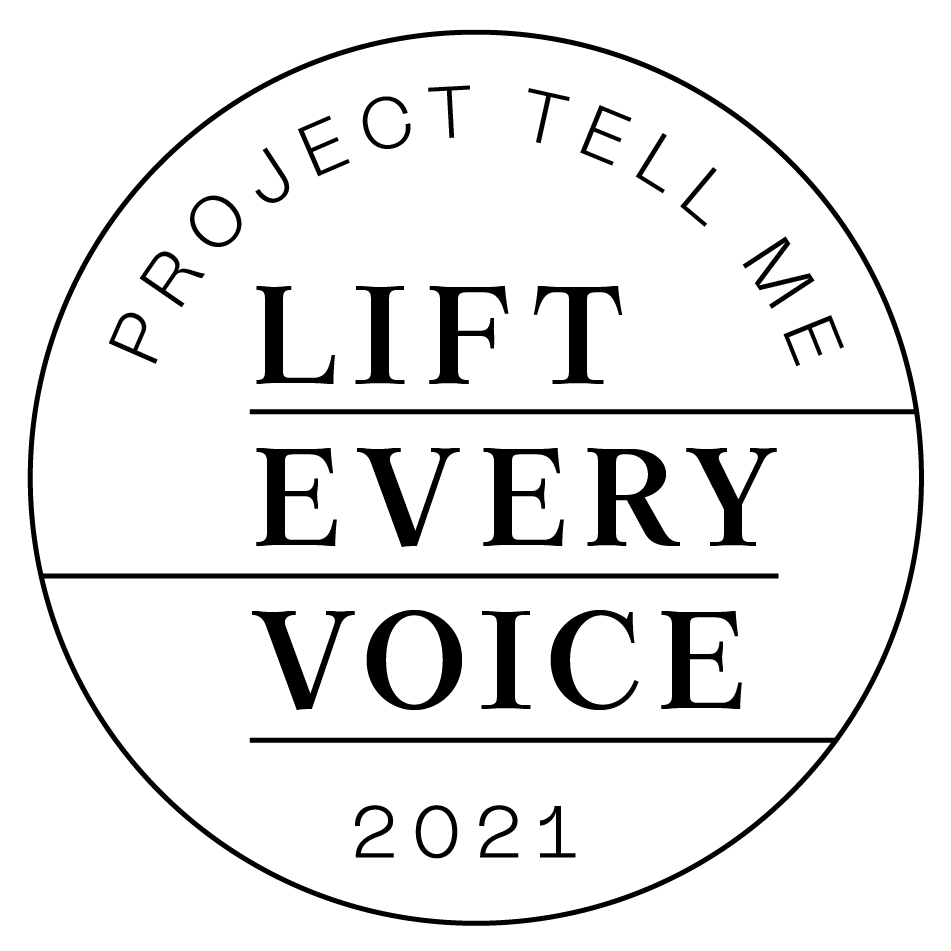Pearlie Harris Remembers Becoming the First Black Teacher at an All-White School

“Hearst Magazines and Verizon Media may earn commission or revenue on some items through the links below.”
Interview by Destiny Chance

This article was originally published with Hearst Television. Click here to see the video.
Retired Greenville County, South Carolina, educator Pearlie Harris, 84, has been honored dozens of times in the community, including the Bon Secours Pearlie Harris Center for Breast Health and on a massive mural project on the outside of the Canvas Tower.
Harris grew up in Saluda, North Carolina, moved to Hendersonville and ended up in Greenville.
“I ended up coming back here because my husband loved this place—because Greenville was a nice small town to raise children—but when I came to Greenville I was afraid. I mean I was really afraid. I had to get on the city bus, I didn’t see any Black people but me, and it was really frightful.”
For 30 years, she taught in Greenville County schools.
“Greenville was highly segregated back in the day, too,“ Harris said. “I had a teacher in fifth grade that was really mean to me, and I didn’t decide to become a teacher until after I talked to my principal, and he was responsible for me going to college.
“When I graduated, I went back to that teacher and told her I was going to be a better teacher than she was. Had some nerve, didn’t I?”
Destiny Chance, a reporter with station WYFF, asked Harris: “What was her response when you said that?”
Harris said the teacher said: “Close my door with your ugly face.”
Harris said she didn’t want to emulate her, she wanted to be a much nicer teacher than she was.
Former fifth grade student Barbara Reeves said Harris inspired her to become a teacher.
“She was always happy, always smiling, singing, and made every day fun. And in school, as a fifth grader, school is not so fun at some times. She made it fun, and I just remember wanting to go every day to be around her,” Reeves said.
Reeves added, “She was just very animated, up walking around the room, like I said, singing. She would teach us little rhymes to remember things and just be happy. She was genuinely happy to be at school. And wanted us to be happy. She genuinely wanted us to be successful.”
Harris said not all of her experiences have been amazing.
Chance asked, “What was one of the worst memories? You mentioned being afraid when you were getting on the city bus, but when it comes to racism how was that for you as an educator?”
Harris replied, “Almost nerve-wracking to some extent because I was among the teachers that were selected to go into the all-white schools in Greenville. The superintendent approached me and said, ‘We’re going to send you to a new school next year and it will be all-white,’ and he said, ‘How do you think you’ll do?’ I said, ‘I’ll do fine, children are children.’ And it was neither hard nor easy, but the children literally called me a [N-word]. And the parents did too. Big PTA meetings, they’d say, ‘We never wanted a [N-word] to teach our children because they don’t know what the white teachers know and they don’t have the education.’”
“My husband was overseas in Vietnam and I decided this year will be the best year these children ever will have in school the rest of their lives,” Harris said. “And I was determined to be that best teacher in that school because I was Black. And I always felt we had to do 10 times more,” she said.
“So we had an art show and the parents were wowed; they didn’t believe the students did that.”
Harris reminisced about some more positive moments.
“Having a parent call me and apologize for calling me [N-word], that was one of my best memories. It brought me to tears and I told her, This is exceptional. Because, who calls someone 20 years later to apologize for something they said that literally hurt your feelings and now you’re conscious of the fact that you did this. I said, ‘Why are you doing this?’ and she said she’s becoming a teacher in her late years and ‘I want to be the person you were.’ You always have to take the higher ground. So I thought, Take the upper road and the people that talked—let them talk. And I have children by this time, I have two sons, and I thought, I want someone to be nice to my children, so I’m not going to take it out on the children, I’m just going to smile and move on. And that’s what I did.”
Harris also reflected on the unveiling of the Canvas Tower and Bons Secours Breast Health Center:
“Diversity, unity, love, compassion, heart—you have to have a love for children and people to be a teacher and to stretch yourself out in the community, I was going to do something different when I retired but I didn’t know what, and all of this had fallen into my lap. And I’m amazed all the things that have happened in my life because I didn’t expect any of it. I didn’t even dream of sitting here with you today, I’m like, Where did it come from? What is happening and what did I do to deserve all of this? But I’m proud of the fact that it is me and I hope it can be a part of what Greenville can say, She made us proud.”
Harris said the pandemic has really set everyone back, including students.
She had some advice for educators: “Love what you do; if you don’t enjoy teaching, don’t do it. And become the best teacher you can be because your children come first.”
She added, “I'll say I’ve been successful at a lot of things but I’m standing on the shoulders of a lot of people and they’re still lifting me up.”
Chance asked Harris what’s next for her and she said she’s open to anything and is happy to be alive at 84 years old.
Turn Inspiration to Action
Consider donating to the National Association of Black Journalists. You can direct your dollars to scholarships and fellowships that support the educational and professional development of aspiring young journalists.
Support The National Caucus & Center on Black Aging. Dedicated to improving the quality of life of older African Americans, NCCBA's educational programs arm them with the tools they need to advocate for themselves.
This story was created as part of Lift Every Voice, in partnership with Lexus. Lift Every Voice records the wisdom and life experiences of the oldest generation of Black Americans by connecting them with a new generation of Black journalists. The oral history series is running across Hearst magazine, newspaper, and television websites around Juneteenth 2021. Go to oprahdaily.com/lifteveryvoice for the complete portfolio.

You Might Also Like

